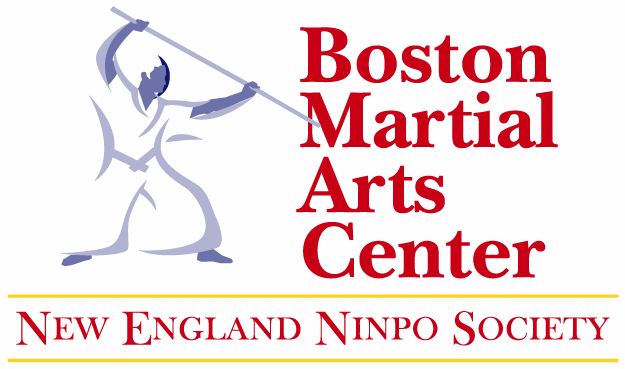FAQs
Studying at the Boston Martial Arts Center
What do you study at the Boston Martial Arts Center?
The core curriculum taught at the Boston Martial Arts Center comes from the Togakure lineage of ninjutsu, which evolved in Japan over several centuries. You’ll receive an in-depth understanding of this martial arts system with an emphasis on its use for self-defense, mindfulness, and problem-solving.
In Japanese, the word “nin,” which helps form words like “ninjutsu” and “ninja,” means the enduring spirit of martial arts. It teaches us to have patience when other people don’t. It gives us a way to understand that everything in life is an opportunity for us to grow. And it allows us to step back and appreciate those moments that effected that growth.
Where can I find out more about the history of Ninpo Taijutsu?
Ninpo taijutsu extends back to more than one thousand years. The art grew over time by undergoing different trials. Things were taken out and added to it based on the success of the warrior who practiced it. Now, centuries later, we have a collection of highly successful lessons that can be applied to today, based on a thousand years’ worth of experience.
How long have you been around? What are your credentials?
Boston Martial Arts opened in 1994. The head of the dojo, Mark Davis, as Shidoshi, received his teacher’s license from Dr. Masaaki Hatsumi in Japan, and Stephen Hayes in the United States.
Do I need to have studied a martial art before?
This dojo welcomes people of all experience levels with martial arts, including none. There is a concept in our martial art, “shoshinsha,” which could translate to the beginner’s mind. It suggests an auspicious condition of perennial learning. What we take it to mean is initiating your study into this martial art.
I studied a different martial art: will this help me/ make it more difficult?
It’s great if you’ve studied another martial art. Every martial art is different, and it’s important to start from the beginning to make sure you have the structure. Having studied another martial art, because you have coordination and movement, might make it easier for you as you advance from this moment.
Is it a competitive environment?
Our dojo is a non-competitive environment. It’s an uplifting environment, emotionally and spiritually. Since we’re not practicing martial arts as a competition, our goals are different. What’s important about training is becoming aware of yourself. Once you become aware of things you’d like to improve, we use martial arts to help improve those areas. The stronger we become, the better the community and world around us become.
What should I bring with me the first time I visit?
Bring something light to train in — sweats generally, some socks, and some water.
Is there a particular etiquette at BMAC?
The general etiquette is to be respectful and polite. It is a sign of respect for the dojo to bow as you enter and leave the doorway of the dojo. This is a reminder that you’re entering a place of learning. The door of the dojo distinguishes it from other places.
How long will it take me to get my black belt?
A black belt is definitely achievable. Although advancing in rank can be very satisfying and rewarding, the most important thing is that you are learning correctly and safely – regardless of what style you are studying.
Kids Program at the Boston Martial Arts Center
Is it safe?
Yes; the environment is safe and fun for the children. We take them through structured experiences that help them gain confidence so that they can do things in a positive manner in their lives.
What do young students learn in kids’ classes?
First, they learn balance, spatial awareness, and focus skills. With focus skills, they get better memory skills. They learn to move their bodies through light cardiovascular workout: stretching, rolling, jumping. They also learn to operate in an environment populated by other children in an orderly manner. And they learn how to respect other children.
Is it competitive?
At BMAC, kids classes, like adult classes, operate in a non-competitive environment. We teach children how to learn to grow. We teach coping skills for when they become adults.
My child plays other sports; will martial arts class help him/her?
Absolutely yes. The head of the dojo played many sports while studying martial arts. It helps keep one safe and promotes coordination for deftness of movement.
Trust your instinct.
Keep in mind that you are a client at a martial arts school and you are paying the school to teach you. Any school should be a professional environment where you have the right to ask questions, and the right to feel safe and comfortable about what you are learning.
